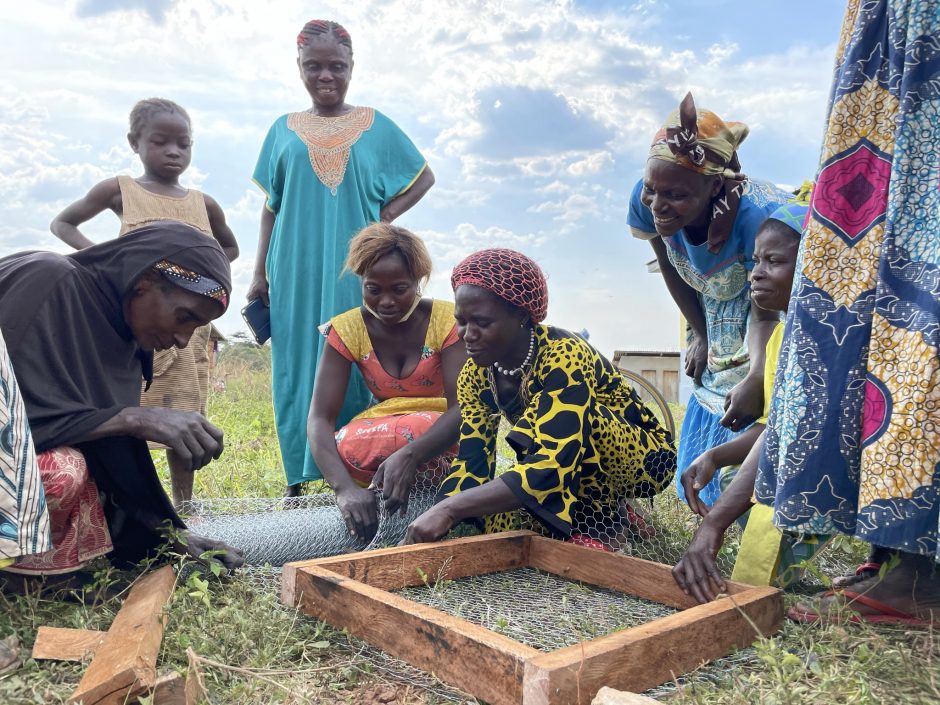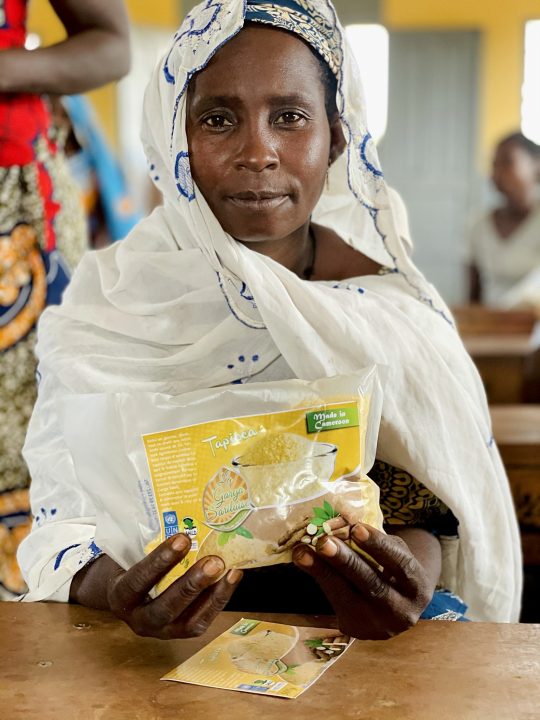With the complex challenges posed by a diverse population looking to build sustainable lives, Cameroon is a country that can benefit from collaborative approaches.
The Central African state is home to 26 million people, speaking 250 different languages, and has taken in 447,000 refugees and asylum seekers. In the eastern village of Garga Sarali, 4,000 of the 9,000 population are refugees – mainly from neighbouring states Central African Republic (CAR) and Nigeria – and now a development project is bringing both groups together to improve livelihoods.
The project is led by AJEEC NISPED, the Arab-Jewish Center for Equality, Empowerment and Cooperation and Negev Institute for Strategies of Peace and Development. It launched its Communities Prosper Together programme in Cameroon in 2019, building on 20 years of development work in other African countries.
AJEEC NISPED’s approach to development focuses on building partnerships and promoting co-operation between different communities. In Israel, it works with some of the most marginalised populations, such as the Negev’s Arab Bedouins, and acts as a knowledge and training centre for the cooperative organisations. Some of its projects also aim to tackle issues that affect both Israelis and Palestinians, such as rehabilitating the Hebron Stream, working with communities in the region: Israelis and Palestinians, Arab Bedouin and Jews
Ben Dagani, AJEEC NISPED’s international programmes manager, says the centre’s domestic projects with different ethnic groups made it want to work in Cameroon as well.
“We wanted to show that this kind of approach of working together and building a shared future and common ground is really a good model international development,” he says.
Around 30% of Cameroon’s CAR refugees live in refugee camps run by the UN Refugee agency. The remaining 70% live in villages such as Garga Sarali, where they were given plots of land. While tensions between locals and refugees exist, there is willingness to work together, says Mr Dagani.
“The communities are very agriculture-based, there are many small farmers,” he adds. “The infrastructure is very traditional. So we felt like there is a lot of know how and technology that we can bring from our experience in Israel. Of course, we are looking at culturally suitable and feasible technology that can be maintained, acquired and be economically sound for these small-scale farmers.”
The project was just about to start when Covid-19 struck, which meant that the initial work was aimed at providing medical supplies, seeds, training on soap making and alcohol making.
Later, in November 2021, the focus shifted towards sustainable agriculture and community resilience.
The project is run in partnership with SAILD, a Swiss NGO supporting local development initiatives in Cameroon, the United Nations Development Programme (UNDP), the government of Cameroon, particularly the Ministry of Economy, Planning and Regional Development, and the Israeli embassy in Cameroon.
“Our approach is to conduct business together, form partnerships, share efforts and through that to create a more resilient community against political stresses, climate changes and so on,” adds Mr Dagani.
As part of the project, the locals and the refugees get presented with different options for business partnerships, including co-ops.
“We are not telling them what to do. This is very important,” stresses Mr Dagani. Those who choose to set up co-ops can also receive training to help them register their business and navigate through the early day challenges of running a co-op.
One of the sessions delivered by AJEEC NISPED provided training in kitchen gardening. Around 120 women farmers attended the course, 12 of which decided to set up a co-op at the end of it. One of the project coordinators supported the women with registering the co-op and writing down its statues.

Another course provided training and machinery to cassava farmers, to help them package and market tapioca, which is made from cassava starch. Two groups of women, some refugees, some local, who took part in the training, are now in the process of setting up co-ops.
“They started producing and selling tapioca in small amounts and they are planning to go bigger and we are supporting them,” says Mr Dagani.

The refugees still face challenges when it comes to documentation or the right to move within the country. Obtaining birth certificates can be difficult and without them the children of refugees don’t have access to social services.
Doumbe Aoudou, 49, who lives in the Gberi Bati sunsection of the village, is one of the members of a new vegetable farming association set up with the support of AJEEC.
She says: “Before AJEEC came to our village, we have never sat in one place together: Baya with Bororo (ethnic groups) with refugees, we were not used to sharing ideas and working together. We have opened our minds and it’s affecting the entire community, we see farmers from refugee and host communities really working together like one family.
“Before (Ajeec NISPED’s project) the village of Garga Sarali never knew how to grow and eat Salad (lettuce) but now through Ajeec, the have grown salad so much until we shall call henceforth Garga Sarali: Garga Salade.”
Mah Edwige, 31, from the Boulembe subsection of the village found the training empowering. She told AJEEC: “Through the AJEEC project, our husband is no longer controlling us like before because we have received liberty to express ourselves and work even with other men, which was very difficult before.”
But challenges remain, warns Mr Dagani – including finance: most villagers have almost no cash, eating 70-80% of the food they grow and selling the rest to buy other food. Some areas lack water and electricity, while an adult literacy rate of just 77.07% (70% for women) makes it hard to fill in the paperwork to register a co-op.
Going forward, the centre plans to continue to work with religious leaders and the heads of villages to pave the way for further collaboration between host communities and refugees. The approach is unique, argues Mr Dagani, because it meets local needs by bringing people together, often via co-operative structures.
“So we have around 13, 14 months of experience working in the community and by now we completely understand the potential of different kinds of co-ops different kinds of models, trainings and people who are more involved and have more commitment and more ownership.”
The centre plans to continue to support the community in managing the co-ops they set up, looking at aspect such as co-operative leadership and governance, technology or marketing. Forming partnerships with local groups will remain a key part of the strategy and the centre is already engaging with a students’ parents association, a refugee committee and a youth club to see what sort of services would be beneficial for them and how they could get the support they need to make these reality.
AJEEC NISPED’s budget is small, says Mr Dagani, who estimates it to be 10% of that of a larger development NGO. As someone who used to live in a youth commune affiliated to the Habonim Dror, a Jewish Labour Zionist youth movement, he says he is used to doing whatever possible with little resources, generating value for money.
“Living in a commune affected me. I’m still doing social work almost 20 years later,” he adds. “When I visit the community I stay in the community. They never saw that before. This is not done by any other organisations. They would come with a private jeep and go back to the city to stay at a hotel.”
AJEEC NISPED’s work is funded by individual donors or via other projects, including providing training for the Israeli government. The centre also runs several social businesses, which bring in an additional income. UNDP also backs the Cameroon project by enabling the procurement of technology and machinery – this funding was approved by the government of Cameroon, who supports the programme as part of its national five-year economic plan.
Further information about their work is available at [email protected].

